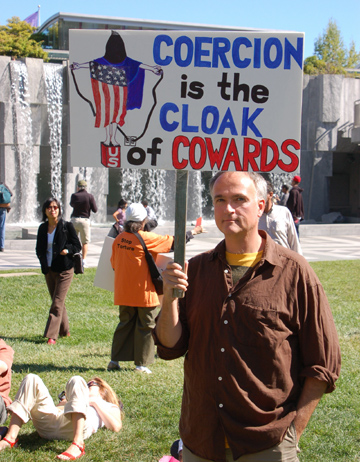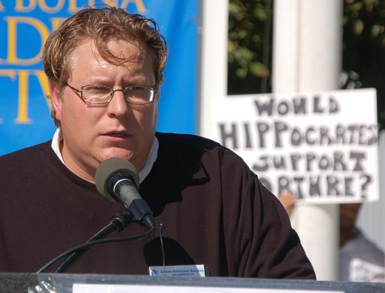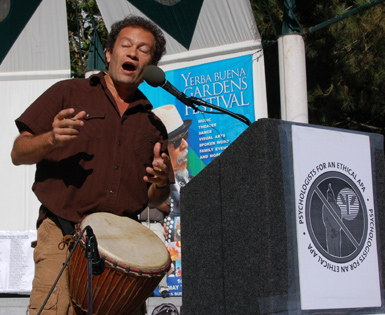
I suppose I ought to have opinions about the San Francisco Chronicle's recent crusade against the homeless residents of Golden Gate Park. See
here, or
here, or
here. After all, in the last 30 years, I estimate that I've logged over five thousand miles running on its paths. Probably more. The nooks and crannies of the park are some of my favorite bits of San Francisco.
Yes, there have always been homeless people living in the park. Sometimes, like most summers, there are more there. Sometimes, for example when the press and politicians are making a fuss (
1997 or
2003) there may be less -- or at least the homeless are better hidden.
There was a period when I felt unsafe in the park in the '90s. A rapist was attacking women in the bathrooms. Eventually he was caught. I once ran a trail past what was clearly a stash of stolen bikes -- there are things you don't want to see. For that matter, there was a gay men's cruising path where I didn't run for years because venturing onto it felt like I was intruding in someone's bedroom.
Like anyone else who uses the park, I don't have any sympathy with people trashing it up or leaving needles lying around.
But I also can't say that the presence of the homeless has ever gotten in the way of my using the park as I do.
What's wrong here is that there isn't any realistic way for these people to get themselves into homes. Folks get down on their luck, or loose their mental equilibrium, or get hooked on drugs -- and end up on the street. Once they wear out whatever human community they had, if any, there is no longer any bottom of the barrel housing -- fleabag hotels, flop houses, seamen's hostels -- in which they can stabilize themselves and eventually crawl back into some kind of life. Cities used to have such places, awful as they were, because such decayed urban properties could make a profit for their owners. I saw them myself on the Bowery in New York in the 1970s.
Since the Reagan era, the federal government has pretty much gone out of the affordable housing promotion business, states and localities are strapped because we've hamstrung the tax system, and interest rate manipulations have made urban land simply too valuable to use to house the poor. That is, as a society, we got rid of their housing options, but we still have the poor. When poor people lose their ability to hold on to private spaces, more and more they get pushed into our public spaces -- into the parks.
Volunteer attorneys recently explained why criminalizing sleeping in the parks just makes things worse:
When a homeless person has a warrant, even for a very minor offense such as sleeping in public, she is prevented from getting the services she needs to exit homelessness. The penalty for a "quality-of-life" citation is a fine. Because homeless individuals are too poor to pay the fines, the citations turn into active warrants.
Pro bono attorneys with the Homeless Rights Project have represented homeless people who were denied public housing because they had warrants for sleeping in the park. We have had clients who would have lost Social Security benefits, General Assistance benefits, a place in a treatment program and employment opportunities, if we had not helped clear their status crime warrants.
The San Francisco Police Department claims that in issuing citations, it is trying to hold homeless residents accountable for their behavior. People camp in parks or sleep in their vehicles, however, because they have no other place to be, not because they want to defy the law.
San Francisco Chronicle,
August 24, 2007
Periodic sweeps and tickets aren't going to cut it.
Until, and unless, we can make our society deal with the causes of homelessness, I'm afraid that we park users are simply going to have to share our public spaces with those who have nowhere else to go. We deserve to be reminded of our failure to organize our society so that it works for vulnerable people. We all would be worse off if somehow we could simply lock the victims of our failed social organization out of our sight. But we can't. They are in the parks.

































